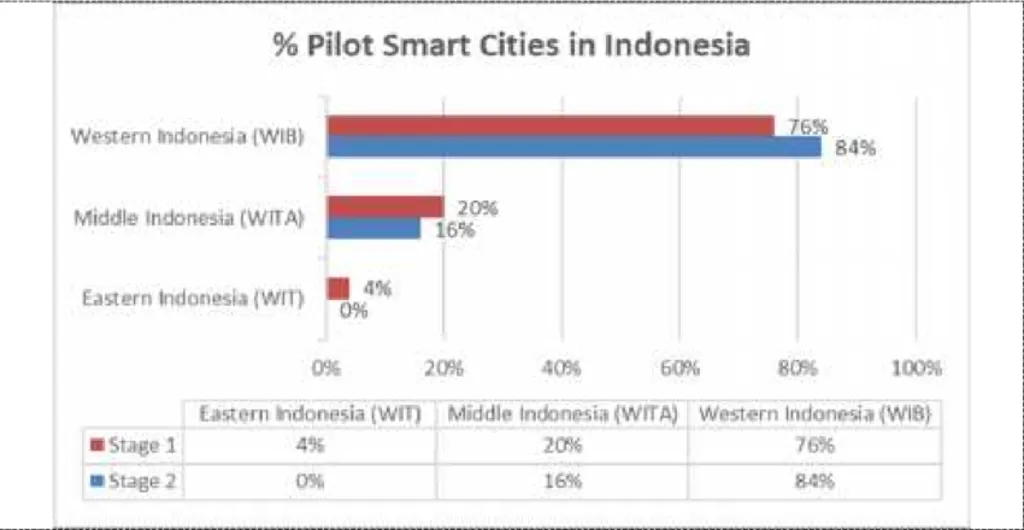Indonesia is moving fast to transform how its cities grow and operate. With over 56% of its population now living in urban areas, which is expected to pass 60% by 2030, urbanization is accelerating. To meet this challenge, the government launched the “100 Smart Cities Movement”, aiming to develop 100 smart cities by 2045. These Indonesia Smart City Developments projects focus on making urban life more connected, efficient, and sustainable.
So far, 25 smart cities have already been developed, and many more are on the way. This progress marks the beginning of a large-scale shift toward green technology, digital infrastructure, and citizen-focused innovation.
Indonesia Smart City Developments: A Booming Smart City Market
The potential is massive. The Indonesia smart city market is projected to grow at a 22.6% compound annual growth rate (CAGR), reaching nearly USD 240,000 million by 2035. This expansion reflects rising investment in digital public services, green construction, and data-driven governance.

One of the fastest-growing areas is smart citizen services, which includes tech for education and healthcare. This segment alone is expected to generate USD 90,000 million in revenue by 2035, showing how much demand exists for smarter, people-centered cities.
Read Also: Indonesia Urban Renewal Initiatives: Innovation at Work
Technology Driving Transformation
Technology is the backbone of these changes. Today, 27% of Indonesian industries already use robotics, and 68% are aware of the technology, showing the country's growing readiness for tech-integrated urban planning. These numbers suggest that as infrastructure improves, more industries and governments will be able to adopt smart systems.
Digital tools are not just limited to industry, but they’re also being embedded into everyday life. Whether it’s traffic control, digital ID systems, or mobile healthcare services, Indonesia smart city developments aim to blend physical infrastructure with smart technologies to improve quality of life.
Read Also: Indonesia Rural Digital Inclusion: A Quiet Revolution
Governance and Sustainability at the Core of Indonesia Smart City Developments
These initiatives are part of a broader vision. Indonesia’s National Long-Term Development Plan (RPJPN) 2025–2045 places smart city development at the center of its strategy for economic growth and environmental sustainability.
As part of this plan, Indonesia has committed to carbon neutrality by 2060. Smart cities play a critical role in achieving this goal through energy-efficient buildings, clean transportation, and digital systems that reduce waste and improve resource use.
Read Also: Can Indonesia Electric Vehicle Infrastructure Meet the Moment?
The government isn’t acting alone. Public-private partnerships are essential in driving innovation and funding, helping to bring together the tech sector, local municipalities, and global investors. So far, about 66.67% of surveyed cities have joined official smart city assessments, showing strong engagement from local governments.
Indonesia Smart City Developments: A Smarter, Greener Future
Indonesia smart city developments are more than just a tech upgrade. In fact, they are a blueprint for the country’s future. With rapid urban growth, rising middle-class demand, and clear policy support, Indonesia is building cities that are smart, inclusive, and sustainable. From USD 240 billion in projected growth to climate goals and improved everyday services, the smart city movement is reshaping Indonesia’s urban landscape, one city at a time.







